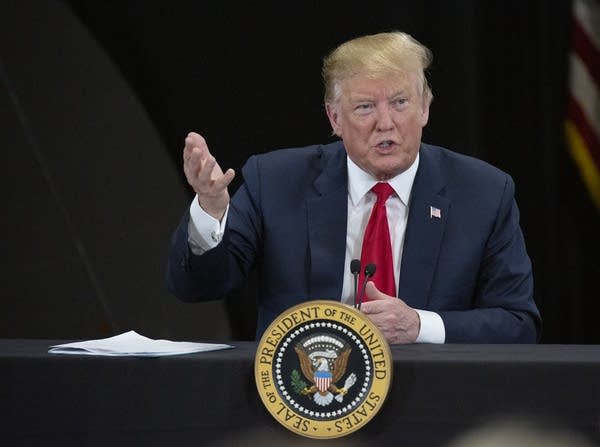Trump defends clinicians' right to refuse to do abortions

President Donald Trump speaks at a roundtable event April 15, 2019 at Nuss Trucking and Equipment in Burnsville, Minn.
Christine T. Nguyen | MPR News File
Go Deeper.
Create an account or log in to save stories.
Like this?
Thanks for liking this story! We have added it to a list of your favorite stories.


